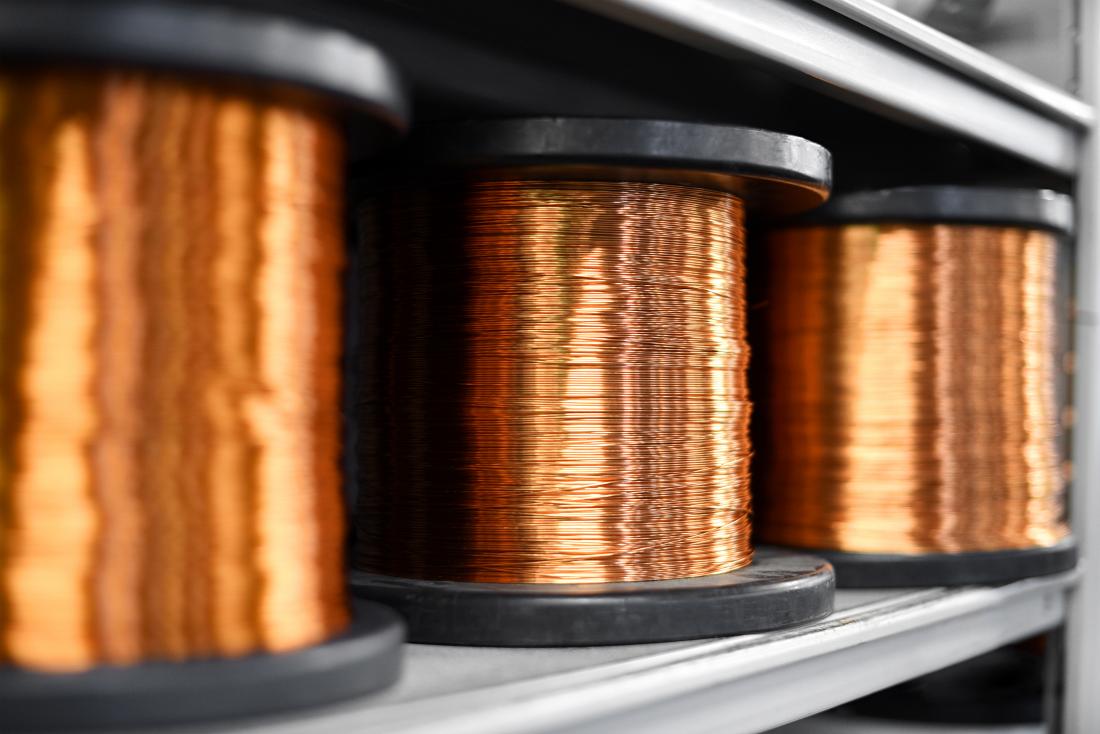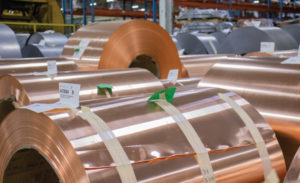Discovering the Versatility and Sturdiness of Cutting-edge Copper Products in Modern Layout
Checking Out the Diverse Applications of Copper Products in Modern Industries
From improving the efficiency of electrical systems to playing a crucial duty in eco-friendly energy modern technologies, the versatility of copper is apparent. As industries progressively focus on innovation and sustainability, the diverse applications of copper require a closer examination, especially concerning their possible impact on future technological improvements and ecological practices.
Electrical Applications of Copper
Copper is a vital product in the electric market, accounting for roughly 60% of the overall need for non-ferrous metals globally - Copper Products. Its remarkable electric conductivity, which is virtually two times that of light weight aluminum, makes it the recommended choice for a large variety of electric applications. From circuitry systems in industrial and property buildings to high-voltage power transmission lines, copper makes certain performance and integrity in electricity delivery
In enhancement to electrical wiring, copper is essential to the manufacturing of electrical components such as transformers, motors, and generators. These components take advantage of copper's thermal conductivity and malleability, vital for warm dissipation and effective efficiency. Furthermore, copper's resistance to deterioration boosts the life expectancy and toughness of electrical systems, making it a cost-efficient service in the long-term.
The growth of renewable resource sources, such as solar and wind power, has actually even more boosted the demand for copper in electric applications. As markets change towards sustainable energy solutions, copper's function comes to be much more important. On the whole, the adaptability and efficiency qualities of copper strengthen its status as a cornerstone material within the electric industry, driving technology and efficiency across different applications.
Pipes and Piping Solutions
In modern plumbing systems, the choice of products considerably affects both capability and longevity. Copper has actually become a favored alternative due to its distinct homes, consisting of rust resistance and antimicrobial features. These characteristics make sure that copper piping continues to be risk-free and sturdy for transferring drinkable water, a critical consideration in household and commercial applications.
One of the essential advantages of copper in plumbing is its capacity to stand up to heats and stress, making it ideal for a selection of applications, from warm water systems to heating and cooling down networks. In addition, copper's adaptability enables less complicated installment in complex piping layouts, decreasing the risk of leaks and failures.
Another noteworthy benefit is copper's lengthy life-span, often exceeding half a century with appropriate maintenance. This longevity not only minimizes replacement costs but also adds to lasting methods by minimizing waste. Moreover, copper's recyclability lines up with modern ecological requirements, advertising a circular economy within the pipes sector.
Copper in Renewable Energy
The flexibility of copper expands beyond plumbing applications, playing an important function in the renewable power market. Its outstanding electric and thermal conductivity makes it an essential product in the manufacturing and distribution of eco-friendly energy resources, specifically solar and wind power. In solar panels, copper is utilized in solar batteries and wiring, promoting efficient energy conversion and transmission. Its resistance to deterioration guarantees durable performance, which is crucial for making best use of power output gradually.

Additionally, as the worldwide demand for electric lorries (EVs) increases, copper's role in battery systems and charging infrastructure comes to be also much more substantial. The product's capability to carry out electrical energy effectively is essential to the performance of EV batteries, boosting variety and charging speed.
Copper's Duty in Electronic devices
Electronic devices manufacturing relies greatly on copper's phenomenal residential or commercial properties, particularly its high electric conductivity and thermal efficiency. These qualities make copper a perfect choice for a vast array of electronic components, consisting of adapters, motherboard, and electrical wiring. The metal's capacity to effectively transfer electrical signals ensures marginal energy loss, which is crucial in high-performance digital devices.
Additionally, copper's thermal conductivity plays a substantial function in heat dissipation, securing sensitive parts from overheating. This is especially essential in modern-day electronics, where portable styles lead to boosted warmth generation. Copper is additionally favored for its pliability and ductility, allowing it to be quickly formed into detailed styles that fulfill the demands of innovative our website electronic applications.
With the increase of consumer electronic devices, telecommunications, and electric lorries, the demand for copper in the electronic devices sector remains to expand. As advancements in innovation evolve, copper stays integral to accomplishing higher performance and integrity in electronic items. Its recyclability even more enhances its charm, as producers look for sustainable remedies without compromising top quality. Thus, copper stays a foundation product in the ever-expanding area of electronic devices.
Cutting-edge Utilizes in Manufacturing

One noteworthy application is in additive production, where copper-based materials are employed in 3D printing processes. This allows for the production of lightweight components and complex geometries, specifically in the aerospace and automobile fields. Furthermore, copper's thermal conductivity makes it a suitable choice for warm exchangers, enhancing performance in commercial air conditioning systems.
Moreover, the increase of clever manufacturing has actually seen the consolidation of copper in IoT gadgets, where its conductive capabilities support innovative noticing innovations. In the realm of sustainable power, copper is pivotal in the production of photovoltaic panels and wind turbines, facilitating more effective energy conversion and distribution.
As markets pursue sustainability and development, copper's flexibility and efficiency remain click over here now to place it as a critical material, driving innovations in manufacturing and adding to the development of smarter, much more effective products.
Verdict
In summary, copper look at more info products demonstrate remarkable adaptability throughout numerous modern-day industries. Copper Products. Their exceptional conductivity enhances electric applications, while deterioration resistance guarantees integrity in plumbing. The important function of copper in renewable resource and its vital feature in electronic devices underscore its significance ahead of time lasting techniques. Furthermore, ingenious uses in manufacturing highlight copper's adaptability and enduring significance. Collectively, these applications illustrate copper's critical contribution to technological development and commercial efficiency in contemporary culture.
From boosting the efficiency of electric systems to playing a critical role in sustainable energy modern technologies, the adaptability of copper is obvious. As industries significantly focus on innovation and sustainability, the varied applications of copper call for a closer assessment, specifically regarding their potential effect on future technological advancements and environmental practices.
The development of renewable energy resources, such as solar and wind power, has even more enhanced the demand for copper in electric applications. Generally, the versatility and efficiency qualities of copper strengthen its status as a cornerstone product within the electric industry, driving development and performance across numerous applications.
The versatility of copper prolongs past plumbing applications, playing a crucial role in the renewable energy sector.